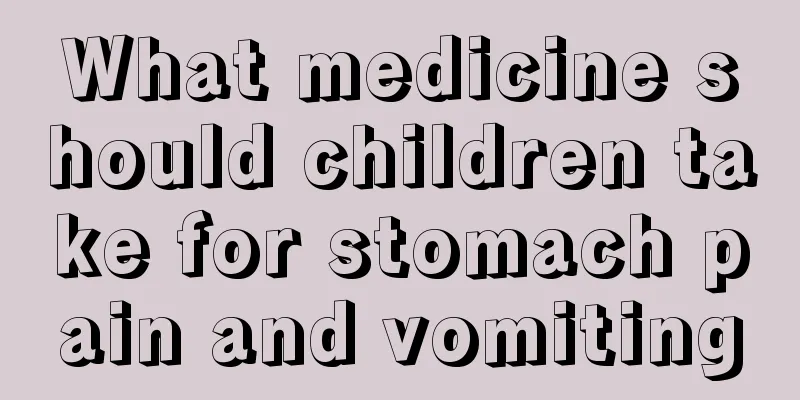Will roseola infantum cause diarrhea?

|
Roseola infantum is also commonly known as roseola infantum. It is an acute infectious disease in infants caused by a virus. Once a child develops this disease, he or she will have fever and rash. The rash usually appears after the child's fever subsides. However, many parents worry that this disease will cause diarrhea in their children. So, can roseola infantum cause diarrhea? First, will roseola infantum cause diarrhea? Roseola infantum is a common disease in early childhood. Most children have had this disease before the age of 2. The disease is characterized by sudden high fever, which usually lasts about 4 days, and then a pink spotted rash appears all over the body. Roseola infantum has two stages. After an incubation period of 5-15 days, the following symptoms first appear: First, the body temperature reaches 39-40℃, but the child is in good condition. Second, sometimes high fever convulsions occur, but some children also have symptoms such as cough, swollen lymph nodes in the neck, and ear pain. The second stage begins about 4 days after the onset of the disease. At this time, the body temperature quickly returns to normal, and small, clear pink spotted rashes appear, mostly distributed on the head and trunk, and can last about 4 days. Second, in addition to fever and rash, some children may also show symptoms such as loss of appetite, vomiting, diarrhea or constipation, or even convulsions. Diarrhea is generally a manifestation of viral infection in the intestines and can usually heal on its own without the need for medication. In addition, some children may suffer from diarrhea if they take some Chinese medicine for clearing heat and detoxifying during fever, but the condition will recover on its own after stopping the medication. Will roseola infantum cause diarrhea? Babies should rest more, avoid strenuous play, and suspend physical exercise. The place where the baby rests should be quiet, with good air circulation and fresh air. The quilt should not be too thick or too much, as this will not be conducive to heat dissipation. Drink more water and add appropriate amount of fruit juice. This will increase the intake of vitamins, facilitate sweating and urination, and promote the excretion of toxins. During the period of illness, the baby should eat easily digestible food. Babies who are already able to eat solid food can eat liquid or semi-liquid food at this time. But be careful to make sure it is nutritious. It is not recommended to drink sweetened water with high sugar content, as the baby will have a poor appetite at this time and it will affect the baby's appetite. Pay attention to keeping your baby's skin clean and hygienic, and wipe off sweat on your child's body frequently to prevent him or her from catching a cold and from getting infected if you have a rash. When the body temperature exceeds 39 degrees, you can wipe the child's body with warm water or 37% alcohol to prevent high fever convulsions. It is not recommended to use alcohol to cool down babies, as alcohol can be irritating to the skin of very young babies. |
<<: Can babies eat lotus seeds when they have a fever?
>>: Can babies with diarrhea eat rice cereal?
Recommend
4 year old baby farts smell
Nowadays, many parents are very excited when they...
Benefits of olive oil for children
Olive oil is an item that is often used in our da...
How to correct children's picky eating?
Children with picky eating habits can eat a lot o...
What to do when your child has a migraine
Children's resistance is relatively weak, so ...
What should I do if my child's hair is falling out?
People will lose some hair when combing their hai...
Is it good for children to have early teething?
Many parents are very concerned about their child...
What happens if a child’s platelet count is lower than normal?
Platelets are very important to the human body. T...
Four-year-old with autism
The onset of autism in a four-year-old child has ...
Reasons for baby diarrhea after feeding
Once the baby has diarrhea, many mothers will be ...
What can children eat to grow taller?
How tall a child can grow has a lot to do with th...
What causes a child to have a stomachache and vomit?
The causes of stomach pain in children are very c...
How to relieve children’s vomiting?
It is very common for babies to develop diseases ...
The reason why 10-year-old children grind their teeth when sleeping
10-year-old children are in the period of growth,...
Early symptoms of pneumonia in children
Pediatric pneumonia is a common pediatric disease...
What to eat for a four month old baby
We all know that breast milk is the most natural ...









